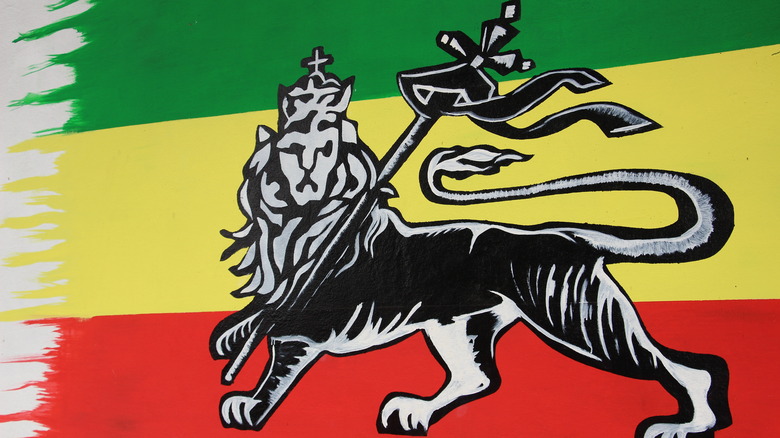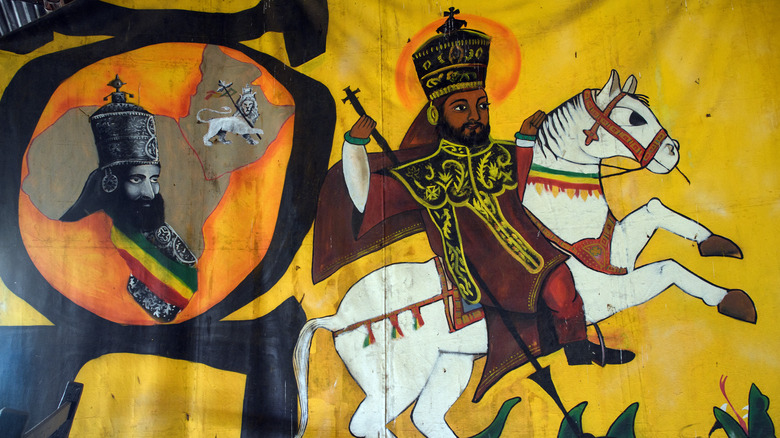Inside The Rastas' Theory About Life After Death
Rastafarianism is a religion, lifestyle, and, in part, a social movement. The catalyst for the movement came during the late 1920s to 1930s in Jamaica after Black Nationalist and Separatist Marcus Garvey introduced the idea that Black Jamaicans who were brought to the island from Africa as enslaved people centuries prior should "overcome their feelings of inferiority and build upon their own unique and evolving culture, and ultimately return to Africa to redeem their homeland and to build a future," according to the website, Black History Month.
That message hit home for many Jamaicans, and Rastafari took hold of the island nation as a blend of Judeo-Christian beliefs, heavy on the Old Testament teachings and the Book of Revelation, according to Religion Facts. And, of course, all of that is combined with a new spin on what those stories meant to the Black community, who embrace Jah or God, whom they recognize as Jesus (significantly, he is Black), and a second messiah named Emperor Haile Selassie.
Selassie was the last monarch of Ethiopia's Solomonic Dynasty and, according to National Geographic, that dynasty is said to have descended from biblical figures King Solomon of Israel and the Queen of Sheba. Rastafarians look upon Selassie as a living god, and Ethiopia as their Zion, or a utopian place. Selassie died in 1975 according to Biography, but Religion Facts says many Rastas believe his death was a hoax.
Rasta's focus on life on Earth instead of an afterlife
If Selassie were alive, that would make him 129 years old today, but for Rastas, since they believe him to be divine, that's totally in the realm of possibility. Religion Facts reports that while Rastafarians don't believe in an afterlife in the sense of souls going to heaven or hell, like in some Judeo-Christian teachings, they instead believe that true Rastas are immortal and they will return to Zion (Ethiopia) in their bodily forms to carry on their existence in peace and freedom from oppression in a concept called "everliving."
Rastafarians also accept the idea of reincarnation, according to the BBC, because they hold that life is unending for those who live the Rasta life. Rasta's main focus is on life on earth, not in an afterlife. They view Jamaica, a land where they were taken to and enslaved, as hell, and because of Garvey's teachings, the homeland of Africa is viewed as heaven. It's a primary aspect of Rastafarian ideology that salvation can and should be found on Earth, according to the New World Encyclopedia.
According to Re: Online, Rastafarians call death "transitioning" because they believe that it's simply the consciousness moving to a new body, which also feeds into their belief that they are the Israelites reincarnated, or the chosen people. Because they eschew the idea of death so much, they do not have specific death rituals or funerals, per the BBC.

